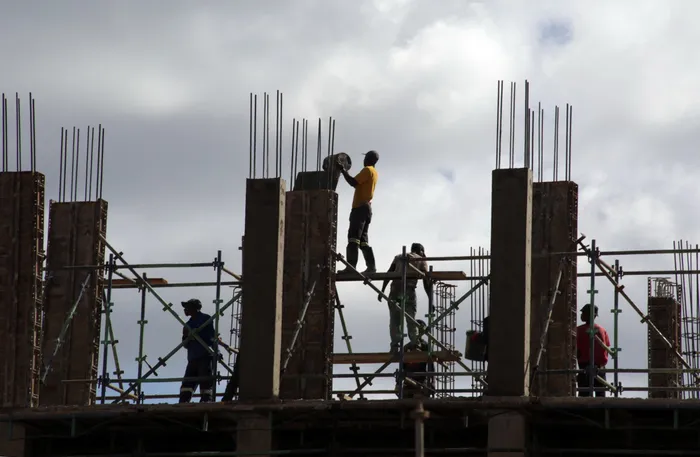Increased security planned for 'high risk' sites threatened by extortionists

Major construction projects in the Western Cape have been hit by extortion or attempted extortion.
Image: Khaya Ngwenya / Independent Newspapers
ELEVEN major construction projects in the Western Cape have been hit by extortion or attempted extortion, putting R470 million in development at risk. It also remains unclear whether anyone has been arrested for the crimes.
Provincial Infrastructure MEC Tertuis Simmers confirmed the figures in a recent parliamentary response, detailing all incidents of extortion or attempted extortion reported to his department over the two-year period.
While Simmers noted that not all disruptions to construction projects stem from extortion, with some linked to theft, vandalism or disputes over project implementation, he confirmed that 11 cases during the period could be clearly classified as extortion or attempted extortion.
These incidents occurred across the Western Cape including, Metro North (2), Metro Central (1), Metro East (5), Metro West (1), the Cape Winelands (1) and Witzenberg (1).
“The total value of these projects is R470m,” he said.
“(The) Department of Infrastructure (DOI) is undertaking active risk assessments on sites which have been identified as high risk to enhance security and has compiled a draft risk strategy and specifications document which is currently being piloted. DOI is partnering with local law enforcement agencies to provide additional security support.”
Police did not respond to questions on arrests in relation to the extortion related crimes and what measures were in place to curb it.
Criminologist, Dr Simon Howell said what is colloquially called “construction mafia” or extortion rackets was difficult to engage from a policing perspective.
“They exist in many forms other than construction mafia type. They are extensive and affect both the private and public sector. They may not even be understood as crimes initially, they are collectives that come together and ultimately commit crimes. It’s widespread and it’s a significant issue because it’s difficult to engage with from a policing perspective. It requires intelligence gathering, capacity and resources. It also requires long term systematic investigation which means it's difficult to judge whether anything’s been done about it because these are all covert operations/investigations. I sense things have been done about it, but just takes a long time to come to fruition because it's complicated and requires a lot of detective work,” said Howell.
He explained the logic behind this type of crime was a group of people positioning themselves in such a manner that they make themselves a requirement of doing business. From running taxis to building infrastructure, they create the impression that no work can proceed without their approval or involvement.
“A group of people position themselves as a mandatory regulatory agency which requires any initiative must do business with them or goes through them and as a result they skim off the top. The way they enforce that is through violence,” Howell added.
DA MPL, Dirk Wessels called on SAPS to “step up visible policing, to reduce these activities and help create a conducive environment where infrastructure projects can proceed without fear or intimidation”.
“While criminal extortionists are trying to hold infrastructure development in the province to ransom, the DA-led Western Cape Government is fighting back. The DA in the Western Cape welcomes the provincial government’s multi-faceted security and community engagement strategy which is designed to protect both the projects and the people working on them. However, a more concerted effort from the South African Police Service (SAPS) is critical,” Wessels said.
Cape Times